Actions, Awards, Events
2020 has been a year of change, and of progress. It gave us ample opportunity for actions and new ventures.
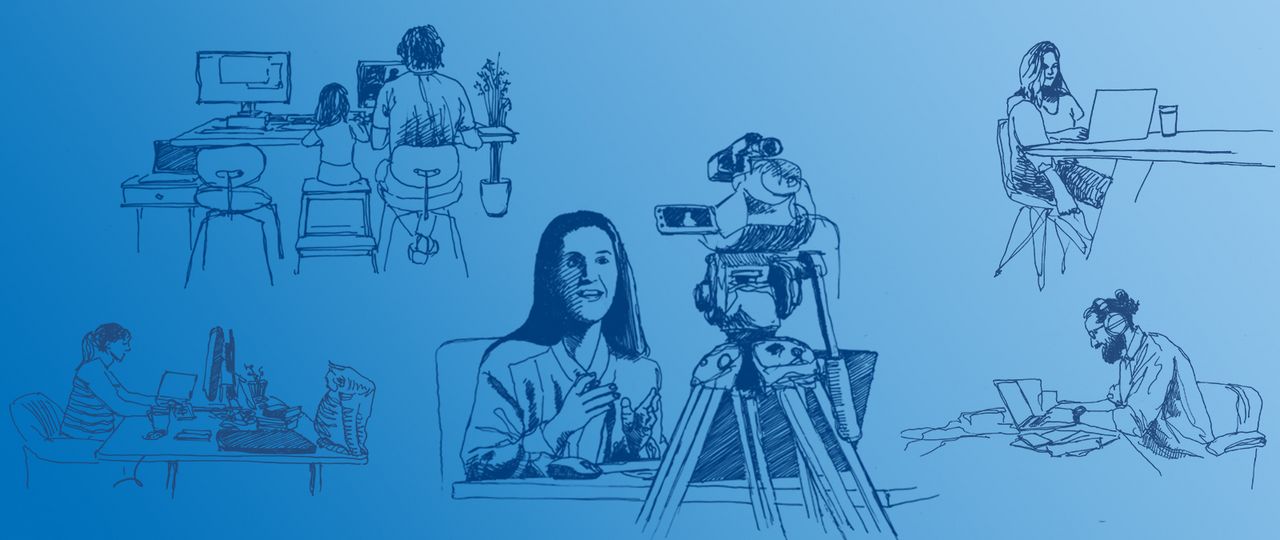
Actions
TUM Innovation Networks
With the cross-disciplinary TUM Innovation Networks as part of our excellence strategy TUM AGENDA 2030, we aim to achieve several goals at once: On the one hand, the Innovation Networks are intended to promote the pioneering spirit of our scientists in new fields. After all, curiosity is one of the most important drivers for ...
read more
Publication CHANGE
The Covid-19 pandemic was and is a fundamental dislocation for the entire globe, the likes of which we have not known since 1945. It affects our common life in states, but also the relations between states, alliances, economic areas and the entire state system. It affects our economic and social system as well as our education and health systems, mobility, and ...
read more
Fellowship Calls
In 2020, we again succeeded in appointing outstanding research personalities as TUM-IAS Fellows. Our 14 new Fellows in the categories Anna Boyksen Fellowship, Hans Fischer (Senior) Fellowship, and Rudolf Diesel Industry Fellowship come predominantly from Europe, including for the first time from Austria, Belgium, Denmark, Ireland and ...
read more
Awards
Even though the year 2020 presented us all with special challenges and we had to forego and adjust to many familiar things, we also had uplifting and joyful moments. The prizes and awards to our Fellows are clearly among them.
The German Pattern Recognition Award was granted to Alumnus Rudolf Mößbauer Tenure Track Prof. Matthias Nießner for his pioneering research on tracking, reconstructing and visualizing photorealistic 3D face models from video with machine learning and AI.
Prof. Jia Chen, Rudolf Mößbauer Tenure Track Professor for Environmental Sensing and Modelling, was included in this year's list of the “Young Elite - Top 40 under 40” in the category “Society and Science”. The German finance magazine Capital has been presenting this award since 2007. Jia Chen conducts research on topics relating to climate change and urban air pollution. She also develops sensors and mathematical models for the exact determination of greenhouse gas emissions and air quality parameters. The data generated can be used to develop new climate protection measures and to evaluate existing measures.
Prof. Job Boekhoven, Rudolf Mößbauer Tenure Track Professor for Supramolecular Chemistry, started his 5 year project on “From Chemistry to Information: a Model System for the Coupling of Metabolism and Heredity”, which was granted by Volkswagen Foundation. With partners in Cambridge/UK and at the TUM Physics Department he looks at the interdependency of genetic information storage and propagation (heredity) and chemical energy dissipation (metabolism), which is a hallmark of life. However, how coupling between metabolic and informational systems emerged and sustained has never been explored experimentally in a cross-disciplinary context. Experts in both experimental and theoretical aspects of systems chemistry and synthetic biology will explore these crucial aspects of the emergence of life through synthetic model systems by addressing the following questions: a) How can heredity arise from pools of information encoding polymers? b) How can heredity be coupled to energy dissipation through chemical cycles? c) How can physicochemical transitions such as liquid-liquid demixing drive such cycles? d) How can a coupled metabolic-genetic system sustain itself?
Prof. Kathleen Thelen, TUM-IAS Hans Fischer Senior Fellow and Professor of political science at the Massachusetts Institute of Technology (MIT), has been honored with the Friedrich Schiedel Prize for Politics and Technology. The Friedrich Schiedel-Stiftung, TUM and the Bavarian School of Public Policy at TUM award the prize annually to outstanding personalities who have contributed to the understanding of the mutual interactions between politics, society and technology. She works in the field of comparative political economy, where she concentrates on the origins and evolution of political-economic institutions in rich democracies. In the past few years she has pursued an important research agenda on the governance of new technologies, in particular addressing the question of how large technology companies can be regulated. Her widely acclaimed publications include for example “Regulating Uber: The Politics of the Platform Economy in Europe and the United States” and “Are We All Amazon Primed? Consumers and the Politics of Platform Power”.
The European Research Council awards not only Europe’s most competitive and most prestigious awards, but also its most highly remunerated. Last year, three of our Fellows at the TUM-IAS have been receiving an ERC grant.
Hans Fischer Fellow Dr. Luca Magri (University of Cambridge) was awarded the prestigious ERC Starting Grant for his project PhyCo. In this project, he combines machine learning methods with the art of constructing physical models, which has the potential to revolutionize the engineering design of multi-physics systems.
Prof. Kathrin Lang, Alumna Rudolf Mößbauer Tenure Track Professor for Synthetic Biochemistry, received an ERC Consolidator Grant for her research on the protein called “ubiqutin”. A crucial step in regulating protein functions consists of labeling selected proteins with a small protein called ubiquitin. Due to the ubiquity of this protein, many diseases are associated with disorders of processes it is involved in. In her Ubl-tool project, Kathrin Lang aims at developing a modular and interdisciplinary toolbox using chemical and synthetic biology to investigate widely varying aspects of ubiquitin labeling that cannot be studied by more traditional approaches. Another objective is to find new target points within the ubiquitin system for the discovery of future treatments.
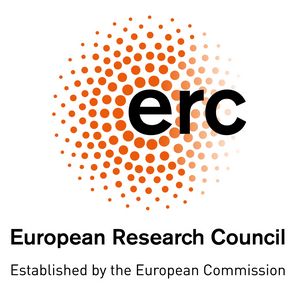
For his research on quantum computers, Prof. Robert König, Alumnus Rudolf Mößbauer Tenure Track Professor for Theory of Complex Quantum Systems, has received an ERC Consolidator Grant. Quantum computers built to date only use a small number of noisy quantum bits (qubits) and therefore do not match the performance of an ideal quantum computer. Robert König's project EQUIPTNT will explore the potential of such restricted quantum devices. Specifically, algorithms will be developed that make it possible to use such devices in applications. In addition, methods to simulate the behavior of associated quantum systems will be developed. These could be used to create models in order to plan the design of quantum devices, to evaluate them or to identify possible problems of a given system. Simulations should also enable the certification of quantum computers.
Events
Science thrives especially on personal exchange, which became almost impossible in presence after March 2020, due to the Corona restrictions. The consequences of the Covid-19 pandemic were especially noticeable at events of our Fellows, but also in the dialogue with the public. Not only were public issues heavily dominated by Covid-19; it also took a while for online conference formats to be developed and widely used. Nevertheless, TUM-IAS has maintained some high-profile events and regular dialogue with the public.
TUM-IAS International Workshop Report

In 2020, the TUM-IAS Focus Group “Built Environment Digital Twinning”, comprising Hans Fischer Senior Fellow Dr. Ioannis Brilakis (University of Cambridge) and his host at TUM Prof. André Borrmann, published a comprehensive report on their International Workshop on Built Environment Digital Twinning. The workshop was organized in December 2019 and co-financed by the TUM-IAS and the Siemens AG.
The concept of a digital twin - a digital replica of a real-world physical entity (El Saddik 2018) - is already widely used in the manufacturing sector. In the built environment sector, digital twins are gradually entering the scientific discussion as they can offer substantial value to all associated stakeholders. The workshop brought together digital twin experts across academia and the private sector, with specialists from the Civil & Environmental Engineering, Computer Science and Architecture disciplines. These experts were given the task to explore the key research and technology transfer challenges in the following areas:
- the digital twin itself,
- from real world to the digital twin,
- from the digital twin to the real world,
- tech transfer and market penetration
Notable speakers were invited to the workshop to present their vision in one of the aforementioned areas. Their presentations were followed by brainstorming sessions that aimed to provide all attendees an opportunity to brainstorm jointly and derive novel insights.
More Informations:
TUM Exploratory Workshops
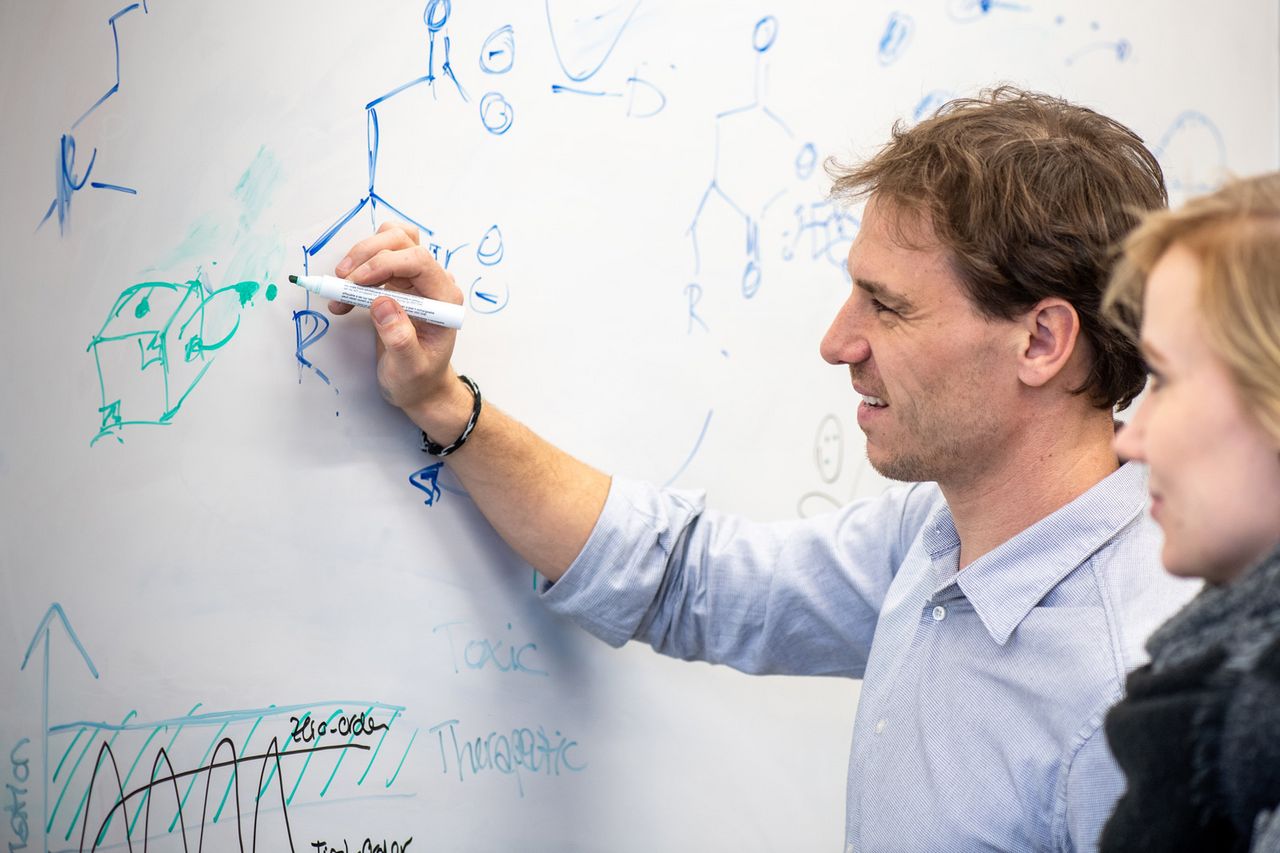
Image: Andreas Heddergott
TUM Innovation Networks aim to foster innovative, high-risk, high-gain research projects spanning multiple disciplines. They are a central element of our institutional strategy, TUM AGENDA 2030.
The teams who submitted the most promising project proposals by September 2020 were invited to participate in a dedicated, project-specific two-day TUM Exploratory Workshop at the TUM-IAS. During the two-day workshop, the project concept was developed further and finalized. Where necessary, further principal investigators could be included in the initial project team. The goal of the TUM Exploratory Workshop was to prepare for a 10-page concept paper reflecting the TUM-IAS motto “Risking Creativity”.
In November and December 2020, the six TUM Exploratory Workshops covered the following areas in a digital format:
- Neural Engineering for Mental Health
- SynLife - Innovation Network for the Synthesis of Life
- Geometric Deep Learning: Beyond Euclidean Data
- Machine Learning Powered Science: Supramolecular Materials for Sustainable Energy Solutions and Regenerative Medicine
- AID-AM – Artificial Intelligence Empowered Design for Additive Manufacturing
- Materials Platforms for Quantum Engineering
This competition resulted in three TUM Innovation Networks, which started operation in April 2021.
IESP Workshops
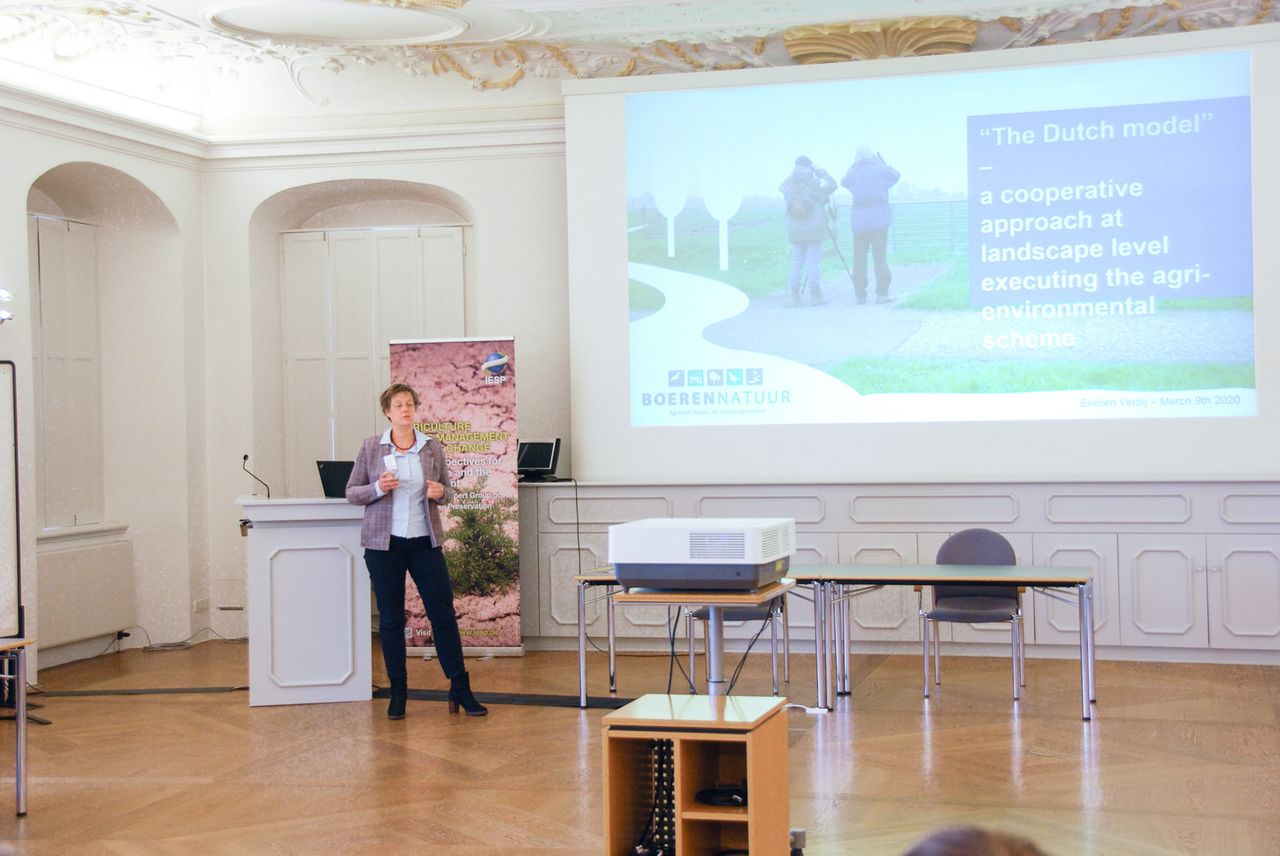
Image: IESP
In 2020, IESP e.V. (Institute for Earth System Preservation) conducted two events. For the project on Agriculture, Water Management and Climate Change, participants met in the workshop “We stay in dialogue” in person at the Irsee Monastery, March 9-11, 2020, right before the first pandemic lockdown. The November 12-13 workshop “Water for All(s) - Even in the Future?!” took place online due to the then prevailing Covid-19 pandemic.
The March workshop invited farmers, agricultural stakeholders, representatives of the food trade, environmental administration, Bavarian ministries of agriculture and environment, scientists, and representatives of civil society. Its goal was to disentangle the often diffusely expressed conflicts and expectations of the different sides in a protected environment. It identified five issues that future discussions about sustainable agricultural transition must prioritize: transparency, a connecting model agreed upon between agriculture and society, transformation, dialogue, and self-organization. The resulting recommendations for action are available for download at www.iesp.de.
The November workshop was the first ever IESP event in virtual space. Participants from academia, (project) management, and (engineering) practice gathered over two consecutive days to discuss the pressing challenges of the Anthropocene for water management. In addition, the Bavarian State Chancellery's Expert Commission on Water Supply used the framework of this event to brainstorm and discuss creative and innovative measures, as well as conventional proposed solutions, on the basis of existing knowledge. Presentations and rotating small group discussions addressed questions of large-scale or path-dependent processes and structures (such as land drainage via watercourse grading and drainage, or the more decentralized structure of water supply and disposal) and alternatives for uses such as drinking water supply, securing minimum ecological flows, irrigation, cooling water, and navigation. The aim was not only to identify conventional solutions for supply and demand management, but also to explore options for new, unconventional solutions for a sustainable water future in Bavaria.
More informations:
Who is IESP?
Wednesday Coffee Talks
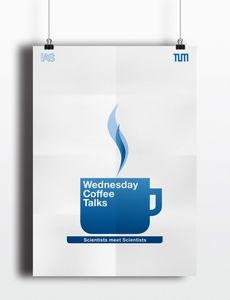
We continued our highly successful series of “Scientists Meet Scientists - Wednesday Coffee Talks” during lecture periods. The 12 talks in total, first still in presence in our TUM-IAS premises, after March 2020 in online formats, thematically ranged from cognitive systems in robotics to green technologies in landscape architecture.
More Information:
A full list of public lectures and events
“Neighbors” Lecture Series
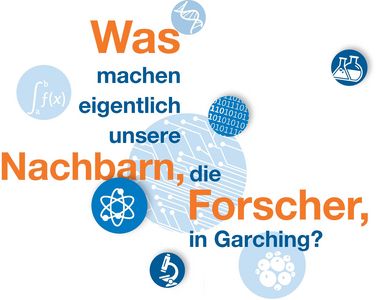
Also our public talks on Sunday mornings, the TUM-IAS “Neighbors” Lecture Series: “What is it exactly that you do in Garching?” had to be mostly in online-formats, nevertheless reaching a large audience. Talks covered topics such as “The Brain, a Supercomputer on the Back Burner? The Role of Mitochondria in the Nervous System” or “Per Aspera ad Astra: From Accelerators to Neutron Stars and Dark Matter.”